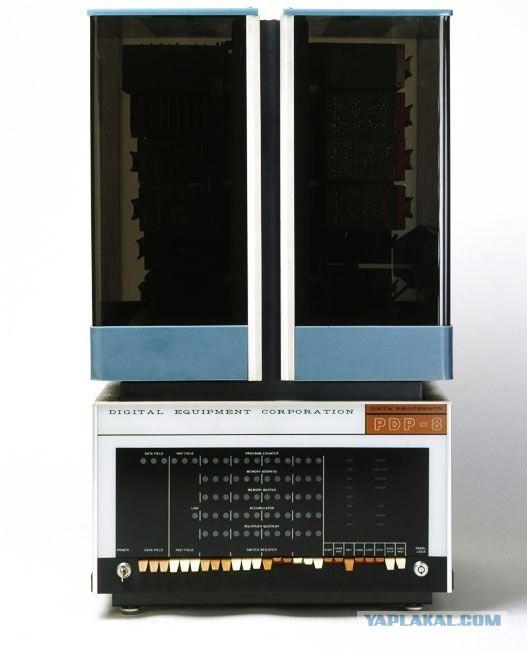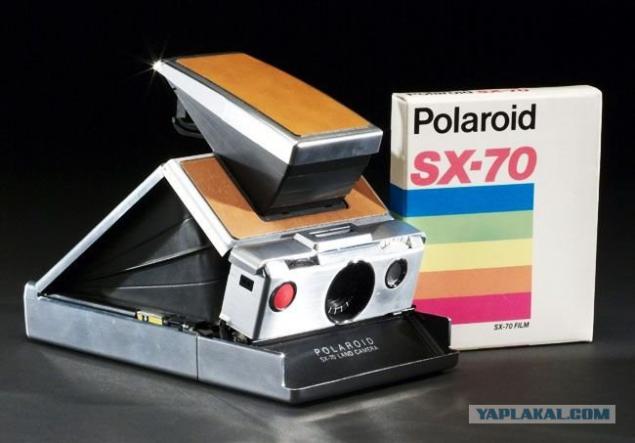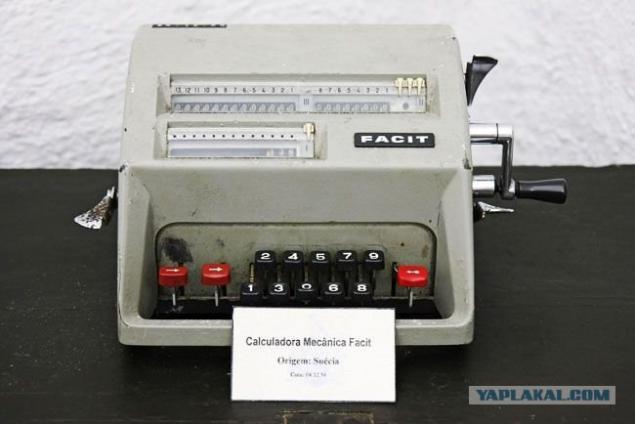698
Victims of technical progress
Kodak and other companies have been unable to in time to see the new technology
The end will tell

Pioneer photo industry company Eastman Kodak Co. It filed for bankruptcy. Over the past year Kodak shares depreciated by 90%, the company is mired in debt, it covers dozens of laboratories and conducts thousands of cuts. After going through bankruptcy proceedings Kodak expects to seriously restructure its business.

Kodak made a fortune in the production and sale of photographic equipment widely available to her photographs - film, paper, and so on. D. In the history of Kodak had a few peak moments when he turned the market through the introduction of innovative solutions. In particular, it is at Kodak invented the first color film. But the company fell victim to the most revolutionary cataclysm in the business - the spread of digital photography.
Kodak faced with the classic "innovator's dilemma." This term was coined by American professor Clayton Christensen to describe a situation where a successful industry leader refuses to recognize a young technology, because it is contrary to its current business model and does not meet the immediate needs of its clients. As a result, over time the technology is "subversive", destroying the entire business in the bud.
Kodak is not the first thriving company that could not survive the appearance of more advanced technology. How to go to the death of Kodak and other companies have suffered a similar fate?
Kodak: the creator of the digital technology, which has ruined his
Kodak irony lies in the fact that the first digital camera was developed in 1975 by his engineer - Steven Sassoon. As he later told in The New York Times, the invention is absolutely not like the leadership of Kodak. "They told me: oh, that's nice, just do not show anyone," - says Sassoon. Top management Kodak irritated the idea that the camera Sassoon did not need in the film - in fact its sales to generate profits.
In the 1980s, Kodak has ordered its analytical units a lot of research to find out how much it threatens the digital photography business. Analysts have concluded that the revolution is inevitable. However, they have been and the "good news": dramatic changes will begin no earlier than ten years, and thus, Kodak will have time to prepare for them.
Kodak made the interesting conclusions from the study. One of the employees in his book says that the company spent the next decade is not to develop a detailed plan for survival in an environment where the film will no longer be relevant, and to explore ways to use technology to improve digital film cameras. Thus, the company spent $ 500 million to develop and launch the camera Advantix. It allows you to take digital photos, but only in order to then capture the image on the film.
Thus, when Kodak finally decided to take a digital photo, it was too late - the company far behind its competitors and has not been able to catch up.
Digital Equipment Corporation, did not believe in "microcomputers» ...

In the 1980s, Digital Equipment Corporation (DEC) respected as one of the most innovative and well-managed companies in the computer industry. Experts praised its management and journalists DEC compared with high-speed train, which carried on the railway line, destroying competitors. It was believed that even IBM can not feel safe. Within a few years the situation has changed dramatically. Market mini-computers (formerly known as computers the size of a wardrobe) quickly began to shrink under the influence of emerging microcomputers (modern PC).
DEC until recently refused to bet on the new segment. Guide giant believed that PC, yielding mini-computers in power, are not able to interest customers in the corporate sector. The situation worsens low margin PC market, which makes it considerably less attractive in the eyes of management. However, the PC became more powerful and in a few years destroyed mini-computers as a class. By the beginning of the last decade of the XX century from former DEC profit was gone. Attempts to establish the production of PC were unsuccessful, and in 1998 the remains of DEC bought Compaq.
Polaroid and its hybrid camera and printer

Famous Polaroid cameras capable of immediately after the shooting to give the finished picture. For shutter click followed a loud buzz, and a few seconds from the camera traveled a square picture. Refuel camera does not film a special cassette containing paper and all the necessary reagents for the chemical reaction. The first such devices began to appear shortly after the Second World War, but failed to blow up the Polaroid market in 1970-1980-ies.
Digital photography gave people the opportunity to instantly view the captured frames, making the idea of Polaroid snapshots is much less attractive. Polaroid was unable to prepare for the change, and in 2001 began the process of technical bankruptcy. As a result, the bulk of the assets of the company turned out to be sold. Since then, C Polaroid experienced another bankruptcy and the period of production of household appliances.
In 2008, the company tried to modernize the idea made her famous: she started to produce digital camera with a built-in printer. The experiment can not be called successful: people simply do not really need the paper photos. Who is resumed production of the classic Polaroid film cameras, which are in low demand among trendy young people.
Facit, creates unnecessary profession

By 1960, the Swedish company Facit was one of the market leaders in mechanical calculators: business units located in more than 100 countries around the world. Devices the size of a typewriter could produce all the basic mathematical operations: multiply, add, divide and subtract. There was even a separate profession of people who believe in such calculators.
Business Facit came to an end when the US and Europe began flooding the cheap, is easy to use and compact electronic calculators from Japan. Already in 1973 Facit was sold to Electrolux.
Western Union, did not believe the phone

At the end of the XIX century, Western Union has been one of the most powerful companies in the US. She actually monopolized the only at that time means of communication over long distances - Telegraph. In 1876, the president of The Bell Company Gardiner Hubbard proposed Western Union for $ 100,000 package of patents developed by founder Alexander Graham Bell device - the phone. Guide Western Union refused, considering Bell's invention meaningless. Subsequently, it will be one of the worst decisions in the history of business.
Western Union, quite quickly realized his mistake, a few years will still provision of telephone services. However, the company will be forced out of business, losing Bella patent war. Implications for Western Union does not prove fatal. Telegraph services will be in demand for a long time, but the power of Western Union gradually melted. As a result, in the 1980s, Western Union will finally leave the communications business, having been engaged in remittances.
Fate of The Bell Company would be completely different. The company is renamed AT & T and from the telephone monopoly has become the largest provider of cellular communication in the United States. Now AT & T capitalization of more than $ 180 billion.
Memorex and the problem of large floppy
Posted in [mergetime] 1327573030 [/ mergetime]
Memorex has been one of the most successful independent companies in 1960-1970's flooded the market with floppy disks. In the early 1970s, Memorex engineers have developed one of the first 8-inch wheels, which are then widely used in mini computers. However, Memorex late transition to 5? -inch Floppies, just not realizing the potential of word processors (machines designed exclusively for typing) and began appearing PC. Already in the early 1980s, Memorex has been sold.
Memorex is a history indicative of many other third-party floppy disks that were not integrated into larger companies. The constant change of the dominant format and the failure to realize future business change left on the sidelines more than a dozen companies.
The end.

Source:
The end will tell

Pioneer photo industry company Eastman Kodak Co. It filed for bankruptcy. Over the past year Kodak shares depreciated by 90%, the company is mired in debt, it covers dozens of laboratories and conducts thousands of cuts. After going through bankruptcy proceedings Kodak expects to seriously restructure its business.

Kodak made a fortune in the production and sale of photographic equipment widely available to her photographs - film, paper, and so on. D. In the history of Kodak had a few peak moments when he turned the market through the introduction of innovative solutions. In particular, it is at Kodak invented the first color film. But the company fell victim to the most revolutionary cataclysm in the business - the spread of digital photography.
Kodak faced with the classic "innovator's dilemma." This term was coined by American professor Clayton Christensen to describe a situation where a successful industry leader refuses to recognize a young technology, because it is contrary to its current business model and does not meet the immediate needs of its clients. As a result, over time the technology is "subversive", destroying the entire business in the bud.
Kodak is not the first thriving company that could not survive the appearance of more advanced technology. How to go to the death of Kodak and other companies have suffered a similar fate?
Kodak: the creator of the digital technology, which has ruined his
Kodak irony lies in the fact that the first digital camera was developed in 1975 by his engineer - Steven Sassoon. As he later told in The New York Times, the invention is absolutely not like the leadership of Kodak. "They told me: oh, that's nice, just do not show anyone," - says Sassoon. Top management Kodak irritated the idea that the camera Sassoon did not need in the film - in fact its sales to generate profits.
In the 1980s, Kodak has ordered its analytical units a lot of research to find out how much it threatens the digital photography business. Analysts have concluded that the revolution is inevitable. However, they have been and the "good news": dramatic changes will begin no earlier than ten years, and thus, Kodak will have time to prepare for them.
Kodak made the interesting conclusions from the study. One of the employees in his book says that the company spent the next decade is not to develop a detailed plan for survival in an environment where the film will no longer be relevant, and to explore ways to use technology to improve digital film cameras. Thus, the company spent $ 500 million to develop and launch the camera Advantix. It allows you to take digital photos, but only in order to then capture the image on the film.
Thus, when Kodak finally decided to take a digital photo, it was too late - the company far behind its competitors and has not been able to catch up.
Digital Equipment Corporation, did not believe in "microcomputers» ...

In the 1980s, Digital Equipment Corporation (DEC) respected as one of the most innovative and well-managed companies in the computer industry. Experts praised its management and journalists DEC compared with high-speed train, which carried on the railway line, destroying competitors. It was believed that even IBM can not feel safe. Within a few years the situation has changed dramatically. Market mini-computers (formerly known as computers the size of a wardrobe) quickly began to shrink under the influence of emerging microcomputers (modern PC).
DEC until recently refused to bet on the new segment. Guide giant believed that PC, yielding mini-computers in power, are not able to interest customers in the corporate sector. The situation worsens low margin PC market, which makes it considerably less attractive in the eyes of management. However, the PC became more powerful and in a few years destroyed mini-computers as a class. By the beginning of the last decade of the XX century from former DEC profit was gone. Attempts to establish the production of PC were unsuccessful, and in 1998 the remains of DEC bought Compaq.
Polaroid and its hybrid camera and printer

Famous Polaroid cameras capable of immediately after the shooting to give the finished picture. For shutter click followed a loud buzz, and a few seconds from the camera traveled a square picture. Refuel camera does not film a special cassette containing paper and all the necessary reagents for the chemical reaction. The first such devices began to appear shortly after the Second World War, but failed to blow up the Polaroid market in 1970-1980-ies.
Digital photography gave people the opportunity to instantly view the captured frames, making the idea of Polaroid snapshots is much less attractive. Polaroid was unable to prepare for the change, and in 2001 began the process of technical bankruptcy. As a result, the bulk of the assets of the company turned out to be sold. Since then, C Polaroid experienced another bankruptcy and the period of production of household appliances.
In 2008, the company tried to modernize the idea made her famous: she started to produce digital camera with a built-in printer. The experiment can not be called successful: people simply do not really need the paper photos. Who is resumed production of the classic Polaroid film cameras, which are in low demand among trendy young people.
Facit, creates unnecessary profession

By 1960, the Swedish company Facit was one of the market leaders in mechanical calculators: business units located in more than 100 countries around the world. Devices the size of a typewriter could produce all the basic mathematical operations: multiply, add, divide and subtract. There was even a separate profession of people who believe in such calculators.
Business Facit came to an end when the US and Europe began flooding the cheap, is easy to use and compact electronic calculators from Japan. Already in 1973 Facit was sold to Electrolux.
Western Union, did not believe the phone

At the end of the XIX century, Western Union has been one of the most powerful companies in the US. She actually monopolized the only at that time means of communication over long distances - Telegraph. In 1876, the president of The Bell Company Gardiner Hubbard proposed Western Union for $ 100,000 package of patents developed by founder Alexander Graham Bell device - the phone. Guide Western Union refused, considering Bell's invention meaningless. Subsequently, it will be one of the worst decisions in the history of business.
Western Union, quite quickly realized his mistake, a few years will still provision of telephone services. However, the company will be forced out of business, losing Bella patent war. Implications for Western Union does not prove fatal. Telegraph services will be in demand for a long time, but the power of Western Union gradually melted. As a result, in the 1980s, Western Union will finally leave the communications business, having been engaged in remittances.
Fate of The Bell Company would be completely different. The company is renamed AT & T and from the telephone monopoly has become the largest provider of cellular communication in the United States. Now AT & T capitalization of more than $ 180 billion.
Memorex and the problem of large floppy
Posted in [mergetime] 1327573030 [/ mergetime]
Memorex has been one of the most successful independent companies in 1960-1970's flooded the market with floppy disks. In the early 1970s, Memorex engineers have developed one of the first 8-inch wheels, which are then widely used in mini computers. However, Memorex late transition to 5? -inch Floppies, just not realizing the potential of word processors (machines designed exclusively for typing) and began appearing PC. Already in the early 1980s, Memorex has been sold.
Memorex is a history indicative of many other third-party floppy disks that were not integrated into larger companies. The constant change of the dominant format and the failure to realize future business change left on the sidelines more than a dozen companies.
The end.

Source:
























